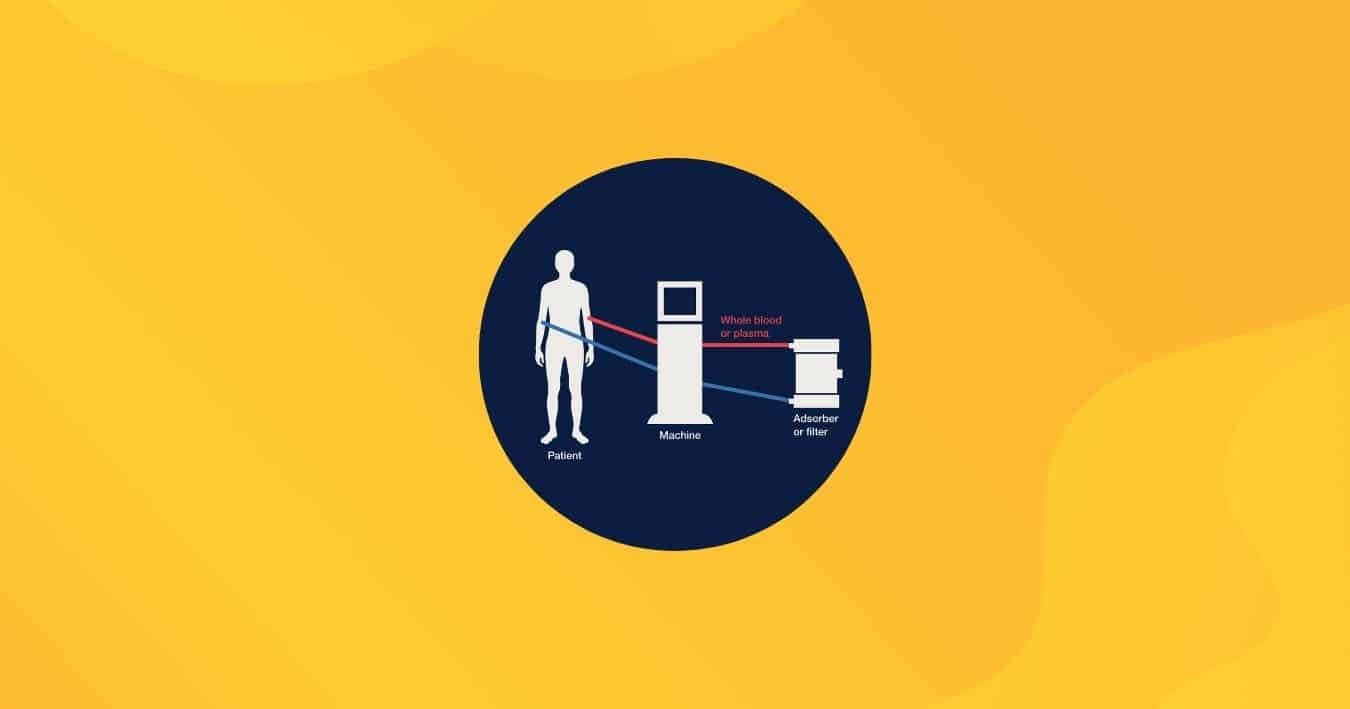What Is Apheresis?
Apheresis is a medical procedure that filters your blood to remove certain harmful substances like autoantibodies (proteins that mistakenly attack the body’s own tissues), inflammatory molecules, microclots, (tiny blood clots that can block circulation), and lingering spike proteins from the SARS-CoV-2 virus—factors that may contribute to Long Covid symptoms. Blood leaves your body, gets filtered by the machine and comes back to you in your other arm. In the context of Long COVID we ourselves are familiar with two types – H.E.L.P. apheresis and INUSpheresis®. Both try to achieve the same result – improving blood flow, reducing inflammation, immunoregulation and overall reduction in symptoms but differ in their mechanism.


How Apheresis Helps for Long COVID
- Reducing Autoantibodies: Some long COVID patients have high levels of autoantibodies. Apheresis helps remove these, which may help relieve symptoms.
- Lowering Inflammation: Ongoing inflammation is linked to symptoms like fatigue, brain fog, and joint pain. Apheresis removes inflammatory molecules and may also filter out leftover spike proteins that continue to trigger immune responses, possibly reducing inflammation.
- Improving Blood Flow: Many long COVID patients have microclots. Apheresis helps remove these, which could improve symptoms like dizziness, shortness of breath, and fatigue.
What the Research Says
Generally, apheresis is beneficial for patients however it’s difficult to give concrete numbers because there aren’t many papers yet. Figures are floating around of 70% of patients report symptoms improvements following the procedure and some practitioners/clinics report 80%-90% positive response in Long Covid (and to an extend ME/CFS) patients however we cannot verify those numbers. Doing double blinded, placebo controlled, randomized trials for apheresis would be both unpractical and unethical, however there is some research and anecdotal reports that are useful – see below.


Key Studies on Apheresis for Long COVID
Studies Showing Positive Effects:
- This study found that apheresis significantly reduced autoantibodies and lipids, which was linked to symptom improvement in long COVID patients.
- This study showed positive effects on blood clotting, suggesting apheresis may help reduce clot-related symptoms.
- This study observed symptom improvement, particularly in patients with high levels of autoantibodies.
- This study reported promising results, with many patients experiencing improvements in fatigue, brain fog, and cardiovascular symptoms.
Study Showing No Apparent Effect:
- This study found no significant benefit of apheresis in long COVID patients, suggesting the need for better patient selection or alternative treatments.
Articles Discussing Theoretical Benefits:
- This article discusses the possible benefits of apheresis, focusing on its potential to remove inflammatory molecules and microclots but without providing direct clinical evidence.
- This article explores the role of autoantibodies in long COVID and chronic fatigue syndrome, suggesting that apheresis might help, but without offering direct proof.
Final Thoughts and Typical Use
Apheresis is a promising treatment for long COVID, and some patients report symptom improvement and recovery, but more research is needed to fully understand its benefits. Apheresis is generally a well-tolerated and safe procedure with many years of application; however, for very fatigued patients with severe PEM it needs to be done extremely gently as it’s very energy intensive, burning 2000-2500 calories in around 3 hours. A list of places where you can get INUSpheresis® treatment is listed on their official website. Before a procedure you will consult with a healthcare professional to determine whether it’s right for you.


